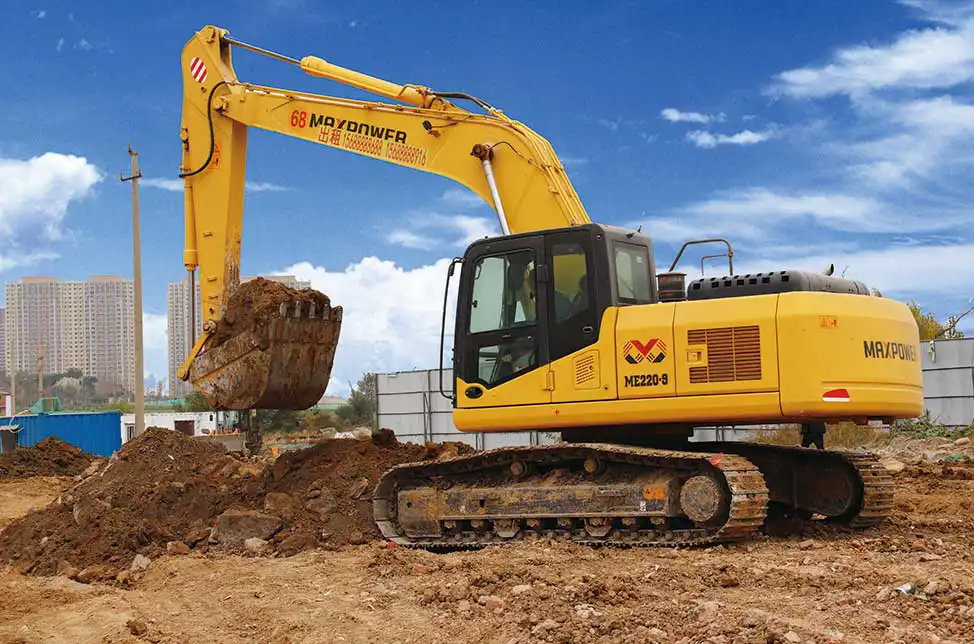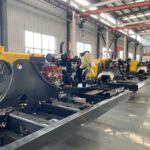Einführung

In today’s dynamic market, excavators have become indispensable equipment across various industries, from construction sites to farms. Whether you’re embarking on a construction project or managing agricultural tasks, finding the right excavator for your specific needs is essential. This comprehensive guide will explore the diverse range of excavators for sale, catering to every requirement and budget.
Understanding Excavators: A Brief Overview
Excavators, commonly referred to as diggers or hydraulic excavators, are robust pieces of heavy construction equipment extensively employed for a myriad of tasks ranging from digging trenches and foundations to excavating holes for various purposes. They are composed of several key components, including a boom, dipper (also known as the stick or arm), bucket, and an enclosed cab, all of which are mounted on a rotating platform referred to as the house. This configuration allows for versatile movement and operation, enabling the excavator to reach and work in different directions and angles.
Exploring Excavators for Construction Sites
Construction projects rely heavily on the performance of excavators, which are essential pieces of equipment known for their versatility and power. These machines are designed to tackle a wide range of tasks, making them indispensable on construction sites worldwide. Whether it’s digging trenches, excavating foundations, clearing debris, or demolishing structures, excavators excel in handling heavy-duty tasks with precision and efficiency.
When it comes to selecting an excavator for construction applications, there are several key factors to consider. One of the primary considerations is the size and weight of the excavator, as this directly impacts its lifting capacity and maneuverability. Additionally, the engine power plays a crucial role in determining the excavator’s performance, especially when operating in demanding conditions or handling heavy loads.
Excavators for Agricultural Applications
In the agricultural sector, excavators play a pivotal role in enhancing productivity and efficiency across various tasks essential for successful farm operations. These versatile machines are not only capable of land clearing and drainage but also excel in irrigation and crop maintenance, making them indispensable for farmers and agricultural professionals alike.
Agricultural excavators are specifically designed to withstand the rigors of farm environments, including rugged terrain, uneven surfaces, and challenging weather conditions. Their robust construction and durable components enable them to tackle demanding tasks with ease, ensuring reliable performance season after season.
| Aufgabe | Functionality |
|---|---|
| Land clearing | Clearing vegetation and debris to prepare land for cultivation. |
| Drainage | Excavating trenches for proper water drainage to prevent waterlogging. |
| Irrigation | Digging trenches or channels for irrigation pipelines to supply water to crops. |
| Crop maintenance | Assisting in tasks such as digging, lifting, and moving materials for crop care. |
Choosing the Right Excavator: Factors to Consider

When embarking on the process of selecting the ideal excavator, it’s crucial to delve into a comprehensive evaluation encompassing multiple critical factors. One of the primary considerations is the size of the excavator, which directly impacts its suitability for different tasks and working environments. A smaller excavator may be preferable for tight or confined spaces, such as urban construction sites or residential areas, where maneuverability is paramount. Conversely, larger excavators offer greater digging depth and lifting capacity, making them better suited for larger-scale projects or heavy-duty tasks.
Power is another pivotal factor to assess when choosing an excavator. The engine’s horsepower and torque play a significant role in determining the machine’s performance and efficiency, particularly when operating under challenging conditions or handling heavy loads. Evaluating the excavator’s power capabilities ensures that it can effectively meet the demands of your specific applications without compromising on productivity or reliability.
Abschluss
Excavators for sale offer unparalleled versatility and functionality, catering to a wide range of applications across different industries. Whether you’re working on a construction site or managing agricultural tasks, investing in the right excavator can enhance efficiency and productivity. With careful consideration of your requirements and thorough research, you can find the perfect excavator to meet your needs and propel your projects to success.
FAQs
What are the different types of excavators available for sale?
Excavators come in various types and sizes, including mini excavators, midi excavators, and large excavators. Mini excavators are compact and suitable for small-scale projects, while midi and large excavators are ideal for medium to large-scale construction or excavation tasks.
How do I determine the appropriate excavator size for my project?
The size of the excavator depends on the scope and scale of your project, as well as the available space and access constraints. Consider factors such as digging depth, reach, and lifting capacity to ensure that the chosen excavator meets your project requirements effectively.
What maintenance practices should I follow to ensure optimal performance of my excavator?
Regular maintenance is essential to keep your excavator in optimal condition. This includes routine inspections, lubrication of moving parts, cleaning air filters, checking fluid levels, and timely repairs or replacements as needed. Following manufacturer recommendations and scheduling preventive maintenance can help extend the lifespan of your excavator and prevent costly downtime.





-150x150.webp)
